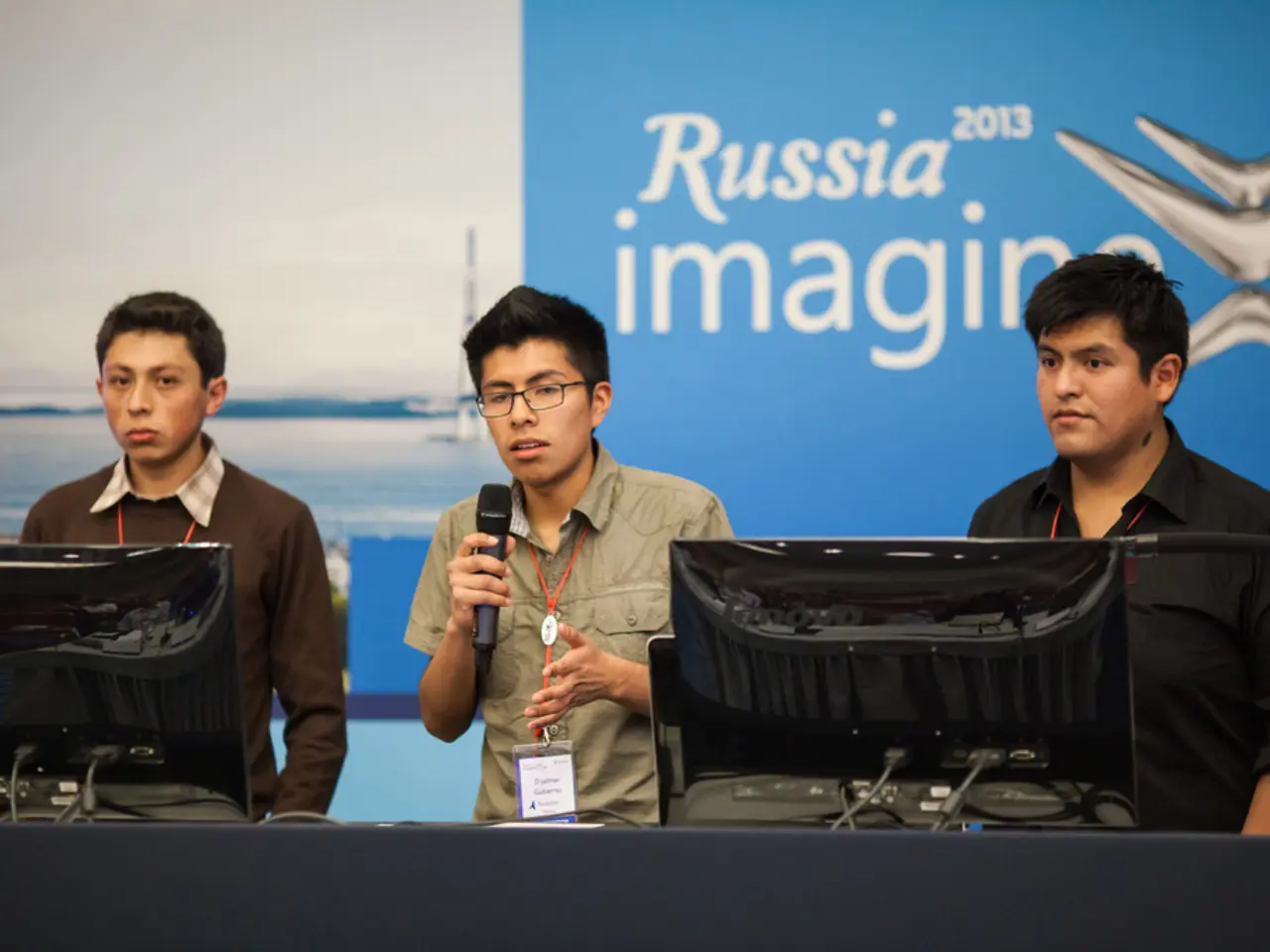Trump hailed by Putin; Merkel urges Kremlin chief to show gravitas - Trump praised by Putin; Merz urges Kremlin leader to show more seriousness
In a significant development, President Donald Trump and Russian President Vladimir Putin met in Alaska on August 15, 2025, marking their first encounter since 2019. The summit, which focused primarily on the ongoing conflict in Ukraine, raised hopes for a potential peace agreement but also sparked concerns about the future of Ukraine's sovereignty and Western unity.
The discussions revolved around Trump’s intention to broker a framework agreement, potentially involving Ukraine and NATO, to secure a ceasefire and negotiate terms. There were also talks of arranging a bilateral meeting between Putin and Ukrainian President Zelenskyy, though Russia has expressed conditions and delays regarding this.
The optimistic scenario of the summit could see a framework agreement featuring a ceasefire with minor land swaps, neither Ukraine nor the West recognizing Russian control over 20% of Ukrainian territory but agreeing not to retake it by force, and Russia recognizing the sovereignty and independence of the remaining 80% of Ukraine. Ukraine would retain the right to self-defense and future alignment choices, including EU membership. NATO would limit troop presence in Ukraine and cease to seek Ukrainian membership, while gradual scaling back of economic sanctions on Russia by the US and allies could be expected.
However, the pessimistic scenario involves Trump accepting a deal aligned with Putin’s maximalist demands, such as regime change in Kyiv and Ukraine’s demilitarization, which Ukraine and NATO would reject. This could lead to a halt in US support and a breach in transatlantic relations, potentially leaving Ukraine subjugated.
The European reaction to the summit has been cautious, noting the absence of Ukrainian and European voices at the talks and concerns over Europe’s marginalization in decisions about the continent’s security. Trump’s attitude suggested Europe should take more responsibility in resolving the conflict, and there is concern about potential delays or easing of sanctions on Russia despite ongoing Russian military actions in Ukraine.
As the weeks unfold, the focus shifts to Trump's evaluation of whether to impose stronger sanctions or reduce US involvement. This reflects the uncertainty about the US’s future role and influence in the Ukraine conflict following this meeting. There is a hope for peace, but there is also a fear that Russia may benefit from violations of international law.
The news blog reporting on the summit has been stern, providing more information about the potential benefits for Russia, as detailed in the article "Why only Russia would benefit from a 'territorial exchange'". Yet, the specific developments at the summit remain undisclosed.
[1] Why only Russia would benefit from a 'territorial exchange'. (n.d.). Retrieved from https://www.example-newsblog.com/russia-benefits-territorial-exchange/
[2] Trump-Putin Summit: What Happened in Alaska. (2025, August 16). Retrieved from https://www.example-newsblog.com/trump-putin-summit-alaska/
[3] Europe Reacts Cautiously to Trump-Putin Summit. (2025, August 16). Retrieved from https://www.example-newsblog.com/europe-trump-putin-summit/
[4] What's Next After the Trump-Putin Summit in Alaska? (2025, August 17). Retrieved from https://www.example-newsblog.com/trump-putin-summit-next-steps/
The European Union and its Member States closely monitor the events unfolding after the Trump-Putin Summit in Alaska, with specific interest in potential repercussions on war-and-conflicts in Ukraine. The pessimistic scenario, as reported in the news blog article "Why only Russia would benefit from a 'territorial exchange'", raises concerns about political implications for general-news, particularly in relation to Europe's marginalization in decisions about the continent's security.






